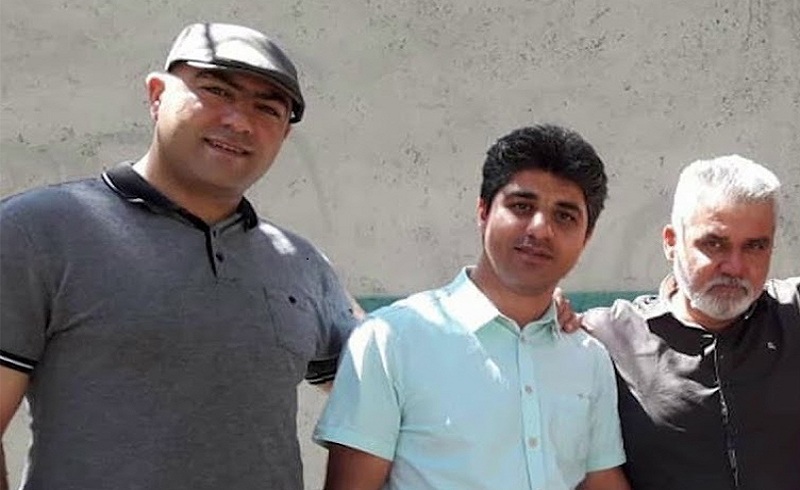Christian converts charged under Iran’s newly amended ‘propaganda’ law

Three Christian converts in Fardis, near Tehran, have become the first known examples of Christians being charged under the contentious recent amendments to the Iranian penal code.
Amin Khaki, Milad Goodarzi and Alireza Nourmohammadi, who have already spent time in prison for their Christian activities, have been charged in the past two weeks with “engaging in propaganda that educates in a deviant way contrary to the holy religion of Islam” – wording lifted directly from the newly amended Article 500 of the penal code.
They were each forced to submit bail of 250 million tomans (around $12,000) and told they must report weekly to the intelligence branch of Iran’s police force for the next six months.
The fresh charges against Amin, Milad and Alireza follow coordinated raids by intelligence agents on their homes, and on the homes of nine other Christian families in Fardis, in November 2020.
None of the Christians were arrested at that time, but many of their personal belongings were confiscated – including phones, laptops, Bibles, Christian literature and anything else to do with Christianity.
The Christian items have not been returned.
Then in the space of two weeks in January and February 2021, a member of each family was summoned for interrogation and ordered to sign commitments to refrain from meeting together
As Article18 noted at the time, Iranian Christians are routinely asked during interrogations to sign commitments to refrain from gathering together in house-churches, but this was the first known example of intelligence officials demanding they sign a commitment to have no further social engagements together at all, including online.
And once again, it was a direct result of the newly amended Article 500, which prohibits “psychological manipulation” or so-called “mind control” by members of “sects” – in the “real or virtual sphere”, i.e. in person or online.
When the Christians refused to sign the commitments, they were threatened with long prison sentences and told it would be better for them if they left the country.
And while only Amin, Milad and Alireza have so far been officially charged, the other Christians have also been threatened with imprisonment or other ramifications, such as employment restrictions.
Background
The controversial amendments to Article 500 and also 499 – which relates to membership or organisation of “anti-security groups” – were ratified by Iran’s Guardian Council in March, having been signed into law by President Hassan Rouhani in February.
They were initially proposed in Iran’s parliament in May last year, but were twice rejected by the Guardian Council, which must approve all bills.
Ever since the amendments were proposed, rights groups including Article18 warned they could be used to further clamp down on unrecognised religious minorities, including Christian converts, as the two articles were already routinely used in the prosecution of converts.
ARTICLE 19, an organisation dedicated to the protection of freedom of speech, called the changes to Article 500 in particular “a full-on attack on the right to freedom of religion and belief”.
And Article18’s advocacy director, Mansour Borji, labelled both amendments “a catastrophe” and “disservice to justice”, which will “bring more ambiguity to an already ambiguous set of charges … and decrease the chance that a judge may act in a more tolerant way towards house-church members, by providing greater scope within the law to bring charges on these vaguely-defined grounds”.
He added that the new amendments would be “celebrated by Iran’s intelligence agencies, who are always in the background in court cases against Christians, pressuring judges to impose the harshest possible sentence”.
Human rights lawyer Hossein Ahmadiniaz had previously warned that the amendments would “facilitate the repression and punishment of Christian converts and others belonging to unrecognised religious groups”.
Meanwhile, Hamid Gharagozloo from the International Organisation to Preserve Human Rights (IOPHR) cautioned: “By making it a crime to be part of a sect, and banning a group as a ‘sect’, it gives them an open hand to crush any form of uprising or dissatisfaction with the government… Any form of defiance will be labelled as a ‘sect’, and then it will be punishable by law.”
